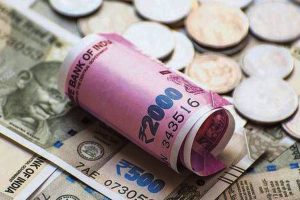At a time when the comity of nations is still struggling to overcome the cataclysmic effect of a protracted pandemic, the eruption of violent conflict in Ukraine threatens to endanger global peace and stability.
India finds itself in a particularly tight spot, as it struggles to make an effective response to the unfolding strategic flux which has the potential to transform into a huge conflagration. After the collapse of the USSR, Russia lost most of its Eastern ‘buffer lands’, Poland, the Baltic republics (Latvia, Lithuania, and Estonia) and east Germany, that are all now pro-US countries and linked with the Nato alliance, which was originally an anti-USSR pact designed in the stormy days of Cold War rivalry.
Advertisement
Russia has a legitimate security concern as it apprehends that if Ukraine also slips out of Russian influence, Nato will get a foothold in the Volga region and can threaten Moscow’s control over its hydrocarbon rich areas. Since independence in 1991, Ukraine had a pro-Russian leader, Viktor Yanukovyc, whose ambitions were aligned with Russian interests.
The situation changed with ‘The revolution of dignity’, popularly known as the ‘Maidan revolution’, where a series of protests erupted across the nation during 2013-14, following Yanukovyc’s refusal to join political association and a free trade agreement with the European Union.
The elected government was ousted, and power shifted towards the current pro-West Volodymyr Zelensky. Following these incidents, the Crimean Peninsula, a geostrategic region in southern Ukraine, with the port of Sevastapol, was annexed by Russia on 18 March 2014. The annexation was claimed by Russia as a mandate of the citizens of Crimea, who are mostly Russian in origin.
Since that incident, bilateral relations between the two nations suffered. On 15 December 2018, the Kiev church severed its ties with the Russian Orthodox church as per the decree of the Ecumenical Patriarchate of Constantinople. This clearly showed the determination of the nation to break out from its former ‘Soviet’ roots, distancing itself from Vladimir Putin’s Russia.
The situation got worse with Ukraine’s growing proximity to the North Atlantic Treaty Organisation (Nato). A war between pro-Russian separatists and Ukrainian forces has been waging in Eastern Ukraine’s Donetsk and Luhansk oblasts, collectively called the Donbas region, since 2014. There is unmistakable evidence that the separatists are supported by Russia.
The Ukraine crisis crossed a critical point with Russia following up its recognition of the breakaway regions of Donetsk and Luhansk with a full-fledged invasion to “demilitarise” Ukraine. This decision by Moscow is a rejection of the inviolability of national borders in Europe as agreed to in the Helsinki agreement of 1975 and a major challenge to the global order. Contestation about post Cold War central European territoriality and resurrecting a burnished Russian past is at the core of the Ukraine crisis.
The United States and its Nato allies are in a huddle and sanctions have been imposed on Moscow. Russian foreign policy under Putin has been turbocharged by the ambitious objectives of boosting economic growth, fostering friendly regimes in former Soviet States, preventing terrorism at home and a drive towards recovering some of the lost glory of erstwhile USSR and bestowing it on Russia as its most important heir. But his decision to send troops to Ukraine has placed him firmly in the West generated public discourse as the arch-villain of our times.
However, any discerning analyst of international politics in the post-Cold War era will point out that while delivering platitudes about promotion of an equitable world order, the Western powers led by US have always accorded primacy to their collective self-interest, never really abandoning the Cold War mentality of maintaining their sphere of influence, doggedly insisting that Nato is the only legitimate security organisation for Europe and Eurasia and carrying forward the extension of the Euro-Atlantic security architecture to the Eurasian space surrounding Russia, despite Moscow’s objections as it perceived the move as a serious threat to its security.
A report in The Times, London, brings out the fact that when, in February 1990, the then Soviet leader Mikhail Gorbachev and US Secretary of State James Baker met for talks in Moscow on Germany’s future, Mr Baker promised Mr Gorbachev, through his interpreter Mr Pavel Palazhchenko, that if US troops remained in Germany after reunification, the North Atlantic Treaty Organisation (Nato) would not expand “an inch to the East”.
Thirty-odd years on, President Putin is using the apparent breach of this promise to repeatedly accuse the West of deception. It is undeniable that over the past 32 years, Nato has become a behemoth, comprising 30 member states, including former Warsaw Pact countries and former Soviet republics. Moscow was determined to show that it no longer believed in the language of negotiations with the West over Nato and was prepared to prevent incorporation of states like Georgia and Ukraine into that alliance by all available means.
Putin’s unwavering and undaunted intention was and still is to present Russia as a fully sovereign militarily strong State, whose economy is performing better than many countries ~ without any American financial assistance ~ to justify its status as a global power.
(The writer is Associate Professor, Department of Political Science, Women’s Christian College, Kolkata)











